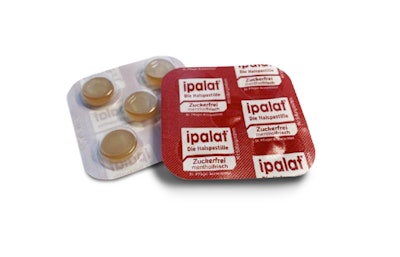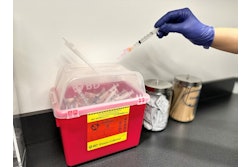
While Reduce and Reuse are critical in healthcare packaging, the industry will need that third “R”—recycle—to round out the strategy to cut waste to landfill or incineration, curb the issue of ocean plastics, and conserve valuable planetary resources. Recycling rates vary by country and even municipality, but more work must be done to mold a linear supply chain into a circular one, which includes bolstering programs that link consumers conveniently with material recovery.
Here, we round up six recent stories recapping recycle-ready blisters, advanced recycling, and returns programs.
1. Educating lawmakers
The SPMC formed a new Regulatory Standards Sustainability Committee, focusing on environmental policy and regulations, and will release a new position paper geared toward lawmakers. There can be serious unintended consequences when sterilization packaging is lumped in with other types of packaging in regulations. The SPMC's first focus is to educate legislators on bills that may require recycled content in packaging and recyclability requirements in packaging, as well as bolstering advanced recycling understanding. Stay tuned for coverage!
2. Advanced recycling
The Healthcare Plastics Recycling Council (HPRC) released its Guiding Principles on Advanced Recycling, signaling advancement towards a circular plastics economy within healthcare. Among these guiding principles is prioritizing technologies that limit greenhouse gas emissions and enhance sustainability, while ensuring claims are accurate and based on robust data.
3. Hospital recycling
The HPRC also recently published a case study demonstrating how the University Medical Center Utrecht (UMC Utrecht), a hospital located in the Netherlands, has overcome some medical waste recycling challenges that many members of the healthcare sector face due to a wide range of barriers, such as economic and legislative obstacles.
4. Recycle-ready blister
Dr. Pfleger Arzneimittel GmbH, in collaboration with ETIMEX Primary Packaging GmbH, launch its recyclable blisters for its sample-size throat pastilles. Product samples are now available in a recyclable packaging variant using the PURELAY polypropylene (PP) monoblister.
5. Blister recycling pilot
Boots, a prominent UK pharmacy chain, has embarked on a pioneering recycling pilot strategy targeting the traditionally challenging blister pack, offering customers a tangible solution to dispose of these complex packaging materials. Once collected, the used blister packs are transported to MYGroup for processing. A specialized machine separates the metal foil from the plastic, facilitating the recycling of the metal and the reprocessing of the plastic into new materials. Some of the plastic is transformed into MYBoardTM, a material used in construction and furniture production, showcasing an approach to repurposing waste.
6. Cannabis packaging returns
Massachusetts-based company Tree House Craft Cannabis has implemented a program to incentivize recycling of its packaging. According to the article, stores find themselves inundated by the volume of plastic packaging coming through their doors. Often, companies must choose child-resistance packaging that features extra layers of plastic to ensure products are more difficult to access. This extra plastic exacerbates sustainability concerns, with much cannabis packaging heading straight into the waste stream.
Buyers Guide
Download our editor-curated list of 40 different sustainable healthcare & medical device packaging suppliers and find your next solution: Sustainable Healthcare & Medical Device Packaging Suppliers





















